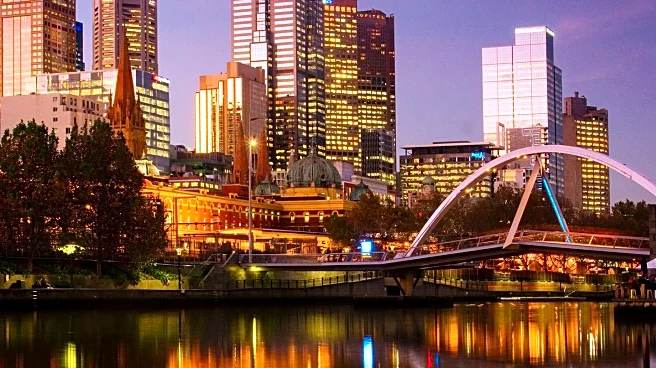What's Happening?
The government of Nepal has implemented a blockade on several popular social media platforms, including Facebook, Instagram, and YouTube, due to non-compliance with a new law requiring registration with the government. However, TikTok and Viber, which have complied with the registration requirements, remain accessible. The directive aims to ensure platforms are managed responsibly to curb online hate and cybercrime. The move has sparked criticism from various organizations, including The Federation of Nepali Journalists and The National Human Rights Commission, who view it as a potential tool for censorship.
Why It's Important?
The blockade highlights the tension between government regulation and freedom of expression in the digital age. For U.S. tech companies, this development underscores the challenges of operating in international markets with varying regulatory landscapes. The situation in Nepal could set a precedent for other countries considering similar measures, potentially affecting global social media usage and business operations. Companies that fail to comply with such regulations risk losing access to significant user bases, impacting their market presence and revenue.
What's Next?
As the situation unfolds, social media companies may need to negotiate with the Nepalese government to restore access. This could involve meeting the registration requirements or engaging in dialogue to address the government's concerns. The outcome may influence how other nations approach social media regulation, prompting companies to reassess their compliance strategies globally. Stakeholders, including civil society groups and international organizations, may continue to advocate for freedom of expression and challenge the government's actions.
Beyond the Headlines
The blockade raises ethical questions about the balance between national security and individual rights. It also highlights the role of social media in political discourse and the potential for government overreach. Long-term, this could lead to increased scrutiny of social media platforms and their impact on society, prompting calls for more transparent and accountable practices.










